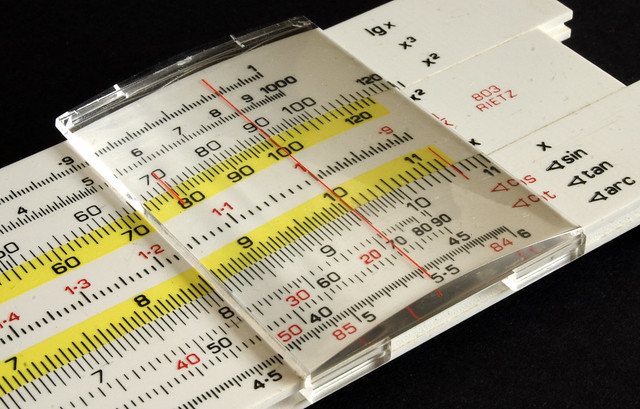From the Congressional Glossary – Including Legislative and Budget Terms
Rules

The term “rules” has two specific congressional meanings.
A rule may be a standing order governing the conduct of House or Senate business that is listed among the permanent rules of either chamber. The rules deal with duties of officers, the order of business, admission to the floor, parliamentary procedures on handling amendments and voting, jurisdictions of committees, etc.
Special Orders: Speeches in the House that take place after the House has completed its legislative business for the day for periods of up to sixty minutes.
Special Rule: A House resolution reported by the Rules Committee that sets the terms for debate, amendment, and votes on a measure. Also see Closed Rule / Modified Closed Rule / Special Rule / Open Rule (CongressionalGlossary.com)
In the House, a rule also may be a resolution reported by its Rules Committee to govern the handling of a particular bill on the floor. The committee may report a “rule”, also called a “special order“, in the form of a simple resolution. If the resolution is adopted by the House, the temporary rule becomes as valid as any standing rule and lapses only after action has been completed on the measure to which it pertains. A rule sets the time limit on general debate. It also may waive points of order against provisions of the bill in question, such as non-germane language, or against certain amendments intended to be proposed to the bill from the floor. It may even forbid all amendments or all amendments except those proposed by the legislative committee that handled the bill. In this instance, it is known as a “closed” or “gag” rule as opposed to an “open” rule, which puts no limitation on floor amendments, thus leaving the bill completely open to alteration by the adoption of germane amendments.
Federal rules are rules and regulations promulgated by federal agencies. Regulations issued by executive branch agencies are available in the Code of Federal Regulations. Proposed and recently adopted regulations may be found in the Federal Register. Significant proposed federal rules are reviewed by the Office of Information and Regulatory Affairs (OIRA), located in the Office of Management and Budget (OMB).
Master the CFR: Researching the Code of Federal Regulations
OIRA’s current regulatory review responsibilities are detailed in Executive Order 12866 (10-page PDF
), which was issued by President Clinton in 1993. The office reviews significant draft rules from agencies (other than independent regulatory agencies) at both the proposed and final rulemaking stages, and also informally reviews certain rules before they are formally submitted. For rules that are “economically significant” (most commonly defined as those having a $100 million impact on the economy), OIRA also reviews the economic analyses. Since 1994, OIRA has reviewed between 500 and 700 significant proposed and final rules each year, and can clear the rules with or without changes, return the rules to the agencies for reconsideration, or encourage the agencies to withdraw them.
“Federal Rulemaking: The Role of the Office of Information and Regulatory Affairs,” CRS Report RL32397 (37-page PDF![]() )
)
Hearing: Oversight of the Office of Information and Regulatory Affairs EventID=103752
Also see
- Floor Amendment
- Federal Register / Rulemaking / Unified Agenda
- § 10.20 Floor Documents, in Congressional Deskbook
- Chapter 4.D. Special Rules; Chapter 8.A. Introduction; Chapter 8.L. House Special Orders; in Congressional Procedure
More
- House Rules
- House Committee on Rules
- House Rules and Manual – Govinfo.gov
- Senate Rules
- Senate Manual – Govinfo.gov
- “Congressional Review of Agency Rulemaking: A Brief Overview and Assessment After Five Years,” CRS Report RL30116 (54-page PDF
 )
) - “House and Senate Rules of Procedure: A Comparison,” CRS Report RL30945 (19-page PDF
 )
) - “Procedures for Considering Changes in Senate Rules,” CRS Report R42929 (21-page PDF
 )
) - “Senate Rules Restricting the Content of Conference Reports,” CRS Report RS22733 (9-page PDF
 )
) - “Senate Rules Affecting Committees,” CRS Report 98-311 (13-page PDF
 )
) - “House Rules Governing Committee Markup Procedures,” CRS Report 98-312 (4-page PDF
 )
) - “A Retrospective of House Rules Changes Since the 110th Congress,” CRS Report R42395 (88-page PDF
 )
) - “House Rules Manual: Summary of Contents,” CRS Report 98-262 (6-page PDF
 )
)
Courses
- Congressional Operations Briefing – Capitol Hill Workshop
- Drafting Federal Legislation and Amendments
- Writing for Government and Business: Critical Thinking and Writing
- Custom, On-Site Training
- Drafting Effective Federal Legislation and Amendments in a Nutshell, Audio Course on CD
- Congress, the Legislative Process, and the Fundamentals of Lawmaking Series, a Nine-Course series on CD
Publications

Legislative Drafter’s Deskbook: A Practical Guide

Pocket Constitution

Citizen’s Handbook to Influencing Elected Officials: A Guide for Citizen Lobbyists and Grassroots Advocates

Congressional Procedure
CongressionalGlossary.com, from TheCapitol.Net
For more than 40 years, TheCapitol.Net and its predecessor, Congressional Quarterly Executive Conferences, have been teaching professionals from government, military, business, and NGOs about the dynamics and operations of the legislative and executive branches and how to work with them.
Our custom on-site and online training, publications, and audio courses include congressional operations, legislative and budget process, communication and advocacy, media and public relations, testifying before Congress, research skills, legislative drafting, critical thinking and writing, and more.
TheCapitol.Net is on the GSA Schedule, MAS, for custom on-site and online training. GSA Contract GS02F0192X
TheCapitol.Net is now owned by the Sunwater Institute.
Teaching how Washington and Congress work ™

